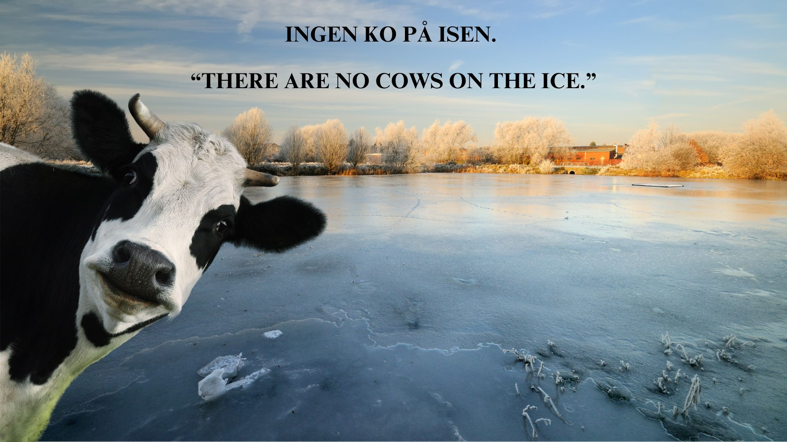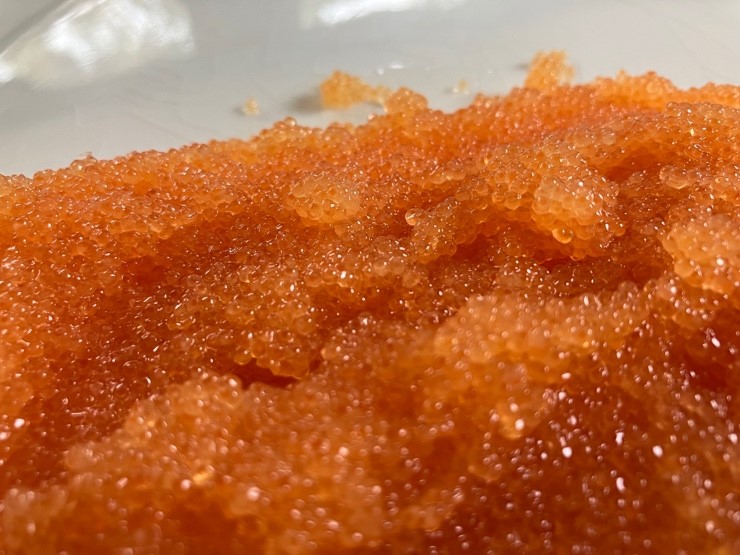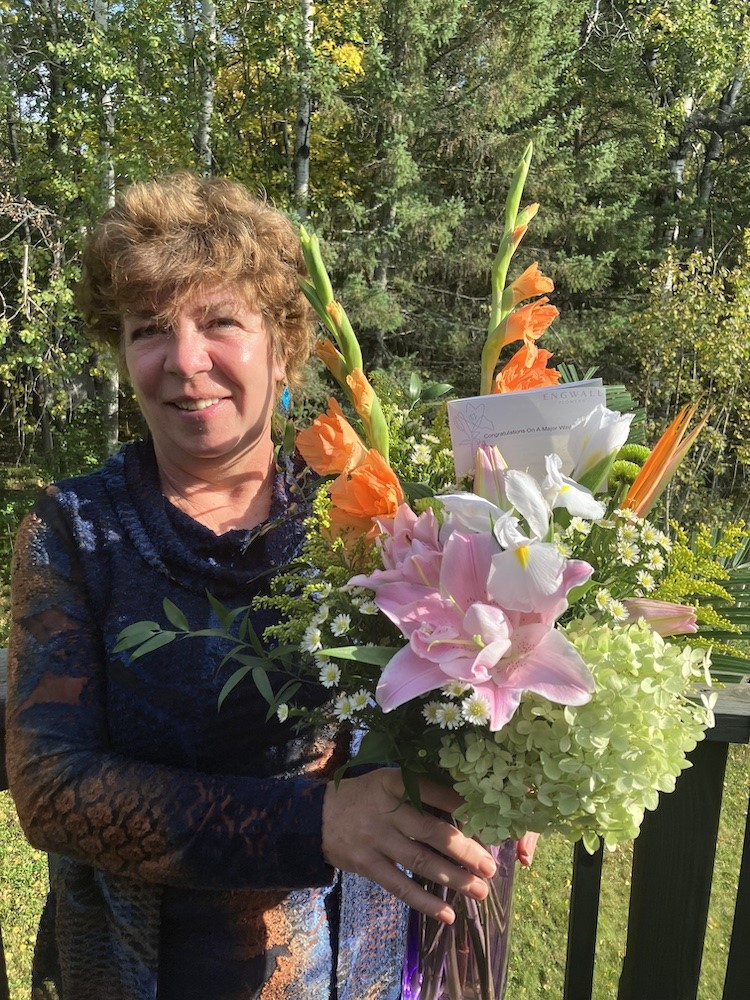The calendar has flipped to 2024. Our staff members are already tackling new projects. Before they move too deeply into the new year, however, some staff members took a moment to retain the glow of their favorite 2023 project. Sharon Moen, food-fish outreach coordinator, shared her thoughts.

Image credit: Sharon Moen, Wisconsin Sea Grant
There’s a Swedish saying: ingen ko på isen. “There are no cows on the ice.” It means a situation is under control. I know this phrase not because I have Scandinavian ancestry but because it helped me facilitate seafood sustainability conversations among the World Wildlife Fund-Sweden, the Swedish Seafood Forum, Monterey Bay Aquarium’s Seafood Watch, the Great Lakes commercial fishing industry and Great Lakes natural resource managers.
My work to clarify the sustainable management of Great Lakes cisco and lake whitefish fisheries began two years ago when a Wisconsin fish processor asked for help. The WWF-Sweden had red-rated these Great Lakes species, labeling the fisheries “unsustainable” and asking consumers to avoid purchasing products related to these fish, namely roe (fish eggs), which is popular in Sweden and valuable to the small-scale fishers of lakes Superior, Michigan and Huron. Swedes take seafood sustainability seriously. Roe sales plummeted as markets pulled product from their shelves.

Roe sales are important part of the annual income of fishers plying the waters of lakes Superior, Michigan and Huron. Image credit: Sharon Moen, Wisconsin Sea Grant
My efforts to facilitate the exchange of evidence-based information through presentations, fact sheets, emails, letters, conference calls and phone calls prompted the WWF-Sweden to reassess Wisconsin and Michigan’s lake whitefish fisheries and Wisconsin’s Lake Superior cisco fishery.
The reassessment was released in September. Lake Superior’s Wisconsin and Michigan fisheries leapt from red (do not) to green (good choice) and Lake Michigan’s lake whitefish fisheries improved to yellow (be careful). People in the industry estimate the mostly overseas sale of cisco and lake whitefish roe generates about $15 million in the U.S.
Working with communication challenges related to fisheries sustainability made me realize how distance, misunderstandings, the complexity of multi-jurisdictional fisheries and the scarcity of funds for accurate assessments can damage the livelihoods of small-scale fishers and the economic viability of coastal communities.
Read more about this project here.

Industry representatives surprised Sharon with flowers. The card reads “Congratulations on a major win!” Image credit: Sharon Moen, Wisconsin Sea Grant


